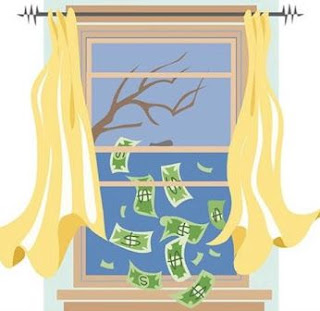Weatherization Saves Energy and Money

With cold weather on its way, now is the time to weatherize your Courtesy of i.pining.com home. All types of homes (apartment, duplex, mobile homes, single-family) benefit from weatherization. Making your home resistant to cold weather by adding storm windows, insulation, etc., will not only make those cold winter nights cozy it will also reduce your energy consumption and reduce your energy bill. The U.S. Department of Energy estimates a savings on your energy bill of 5 to 30%. Weatherization – What you do Add insulation to walls and attic – if needed Seal air leaks in attic with expanding foam or caulk (seal around chimneys, wiring, ducts, flues, and vent stacks) Caulk doors and windows Install weather-stripping to windows and doors Install plastic sheeting on inside windows and sliding doors Install door sweep Seal furnace ducts Seal household leaks with spray foam (around door and window frames, chimneys, vents, skylights, etc.) Use heavy curtains ...
